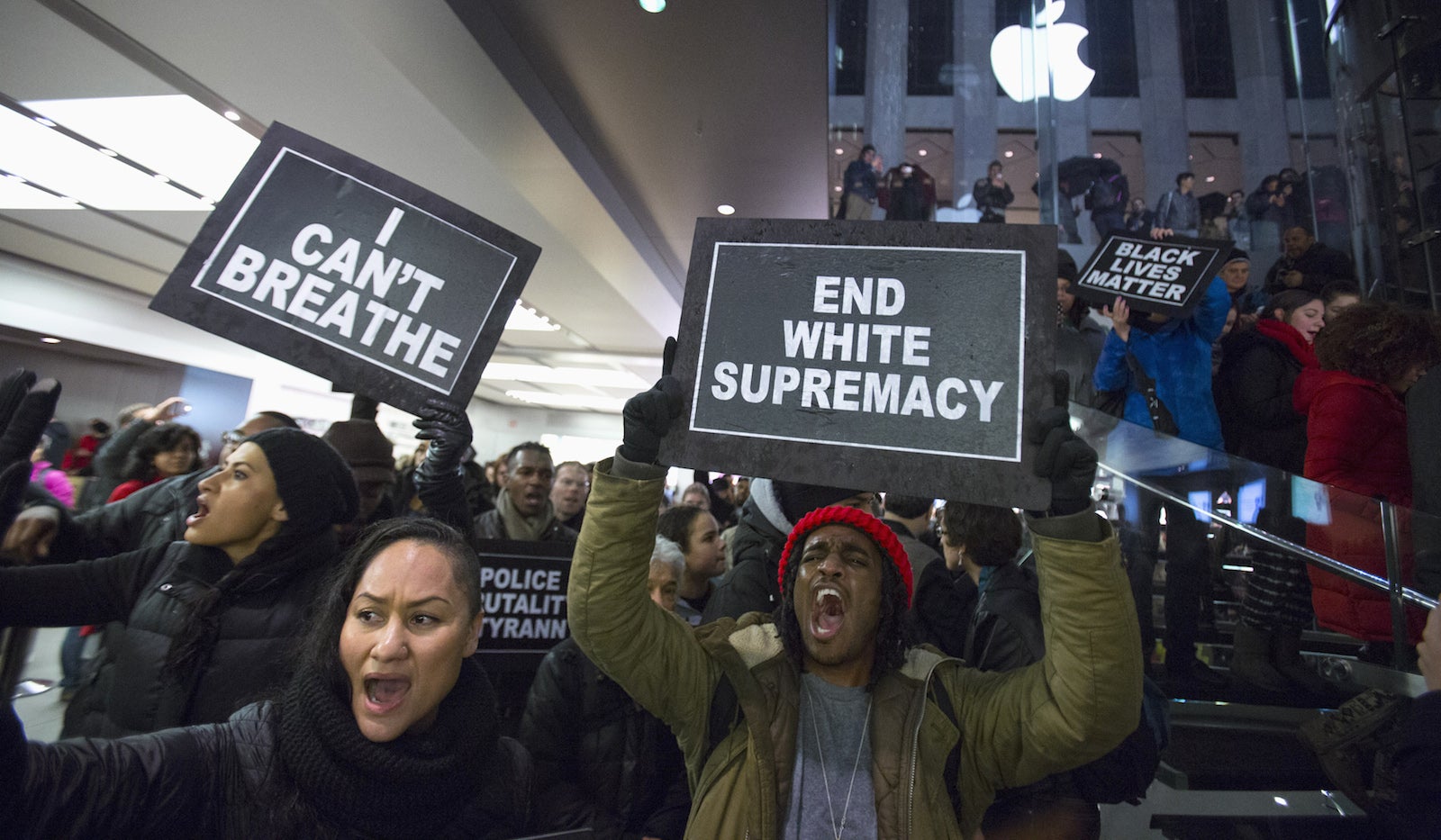America’s police brutality protests have now reached New Delhi
The protests in America over police killings in Ferguson and New York have now reached halfway across the world.


The protests in America over police killings in Ferguson and New York have now reached halfway across the world.
A group of students from Jawaharlal Nehru University (JNU) in New Delhi will protest “against anti-black racism in Ferguson and beyond” on Monday, to show their solidarity with the thousands of demonstrators in the US.
In November, a grand jury declined to indict a white police officer in the shooting of an 18-year-old black man in Ferguson, Missouri. This week, another grand jury did not press charges against a white New York City police officer whose chokehold caused an asthmatic black man’s death.
Both these incidents have led to race-related unrest in many American cities.
“We want to send a message to the American state that even though we are here in India, we are watching,” said Meghna Chandra, a history student at JNU, who is one of the organisers of the protest.
Chandra is an Indian-born American who graduated from University of Pennsylvania and has been living in India for a year now. She and other protesters will gather in front of the US Embassy in New Delhi on Monday morning.
The organisers, mostly Americans, have created a Facebook page to invite students from other colleges in Delhi.
“We see the connections between the criminalization of black and brown bodies in the United States and the criminalization of Muslim, Dalit, and Adivasi bodies in India,” the Facebook page said.
“The persistent discrimination calls into question the very notions of American and Indian democracy.”
The protesters also hope to create awareness about racial discrimination faced by foreigners in India.
“Racism in India is not discussed much but it is really rampant against Africans,” said Vincent Kelley, a 21-year-old American exchange student at JNU.
Kelly referred to a video that appeared on YouTube in September this year, which shows a mob attacking African nationals at a busy metro station in Delhi.
More than 150 people are expected to participate in the demonstration, Chandra said.
JNU students have a history of fighting for social and political rights of the underrepresented.
The university was one of the first to organise a protest after the brutal gang rape of a 23-year-old medical student in a moving bus in Delhi two years ago. Their agitation eventually captured the attention of the entire world and helped bring about tougher rape laws in India.